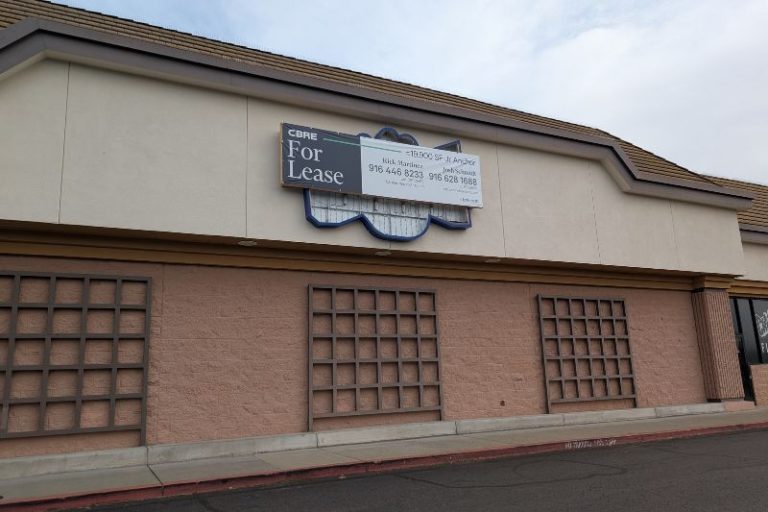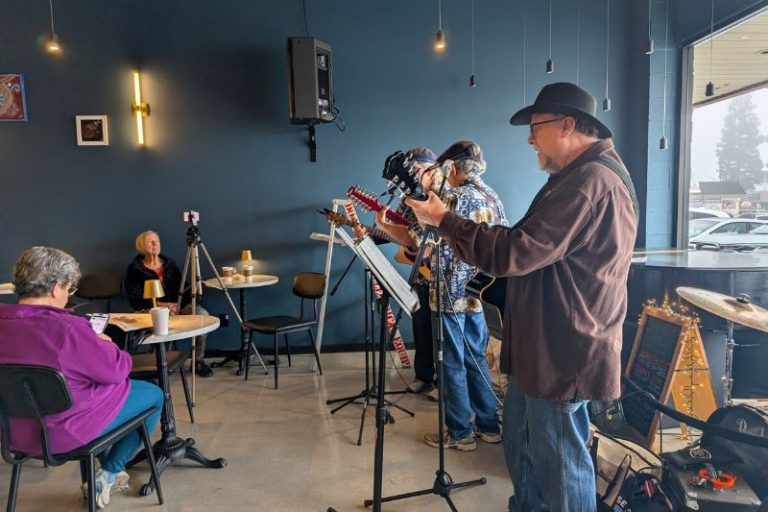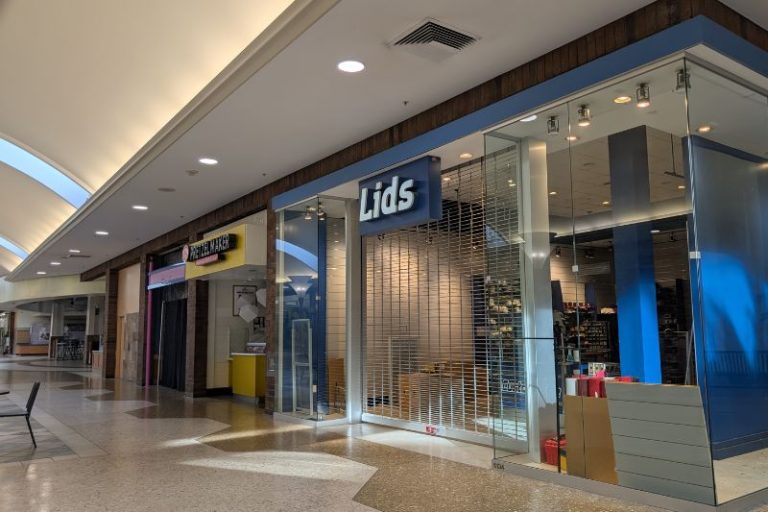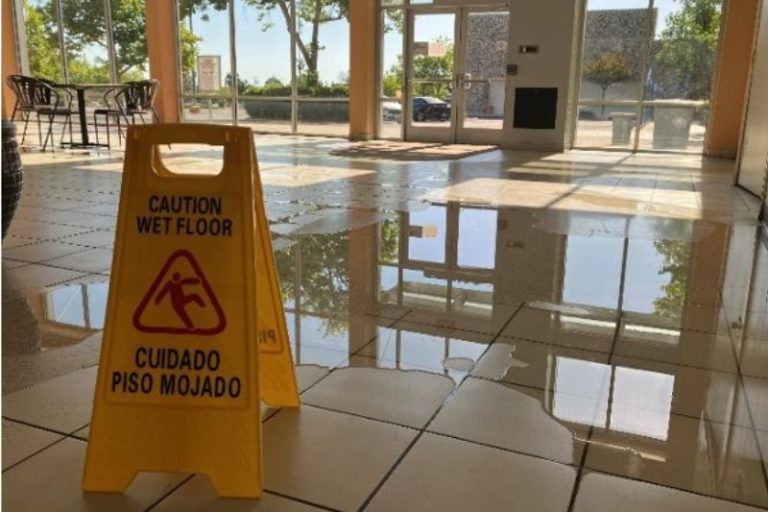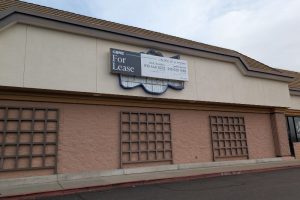
By Sara Beth Williams–
Property owners expressed concerns regarding the proposed draft of a commercial property re-occupancy ordinance during a lightly attended public workshop last week.
During the workshop, held on Aug. 11 at City Hall, city officials emphasized that the ordinance was a draft and encouraged questions and feedback from attendees after presenting the details of the ordinance. Several business owners were present as well as a representative from the Sunrise Marketplace business improvement district, Citrus Heights Police Department and Citrus Heights Chamber of Commerce Executive Director Sheri Merrick.
The goals of the ordinance are, according to the city, to provide guidelines and support for property owners in order to ultimately help reduce blight, prevent crime, practice proactive maintenance, and maintain properties so that they are “market ready.”
“This item is a building block on a number of different blocks that we’ve been building on for a firm foundation of a clean and safe community,” Feeney said in his opening remarks at the workshop.
During the presentation made by the city’s Economic Development and Community Engagement and Community Development Department, the city said property owners would be required to register a vacant building within 30 days and pay about $1,100 annually until the building is occupied. Upon registration, property owners will need to provide a statement of long-term plans, maintenance and security plans, and contact information for the owner. Feeney later stated that the city does not always have access to the most up-to-date contact information for property owners.
Property owners would also be required to pay monitoring fees annually, which would cost about $1,100 for properties that are less than one acre and $5,600 for vacant properties that are larger than one acre.
Registration and monitoring fees would only required for a vacant building or shopping center strip that might house multiple tenants and do not apply to each vacant business suite. Exemptions from some fees would be provided for properties where the building is 75 percent occupied and have no active code violations, or if a building is actively under construction, or construction permits or use permits are actively being pursued. Monitoring fees would be partially waived at a prorated rate once vacancies are filled, according to draft language.
One property owner, who manages properties at a shopping center on Greenback Lane, expressed significant concern over the potential of having to pay fees that range in the thousands of dollars. The property owner explained that insurance rates all around have increased significantly and he’s also planning to revamp the entire landscape and asphalt in his parking lot.
Tiffany Clement, another property management representative from Merlone Geier, which manages Sunrise Village, challenged the city’s assertion that property owners aren’t attempting to fill vacancies in a timely manner and that fees will help property owners fill vacancies faster.
Clement and Merrick both worried that if property owners are required to pay thousands of dollars in fees annually, property owners will pass the high costs onto their tenants, resulting in higher rental fees.
Merrick wanted to know how many property owners in the city owned multiple properties and worried that the high cost of registration and monitoring fees would result in costs being passed on to tenants. Merrick also questioned what jurisdictions nearby have utilized similar programs and whether or not they were successful.
Clement, who is also the Chair of the Board of Directors for Sunrise Marketplace, listed all the benefits property owners and businesses receive when paying fees to the business district, including added security personnel and extra marketing, but questioned what the benefit of being required to register with the city will be.
Economic Development and Community Engagement Director Meghan Huber said the city plans to provide property owners with a support packet when they register. The packet is to include maintenance checklists, Crime Prevention Through Environmental Design (CPTED) guidelines, staff contact directories, and business marketing and permitting resources, including business attraction program information.
The city expressed concern over the number of property owners who are not local and presented examples of properties with absentee owners that have been vacant for multiple years. Huber said she, not being a broker herself, has attempted to bring “no less than five quality leads” to a vacant property in her role in economic development. Huber explained that vacant properties suffer neglect and become deteriorated, and that in turn invites vandalism.
“All of this decline affects property values, resulting in lower marketability and rent potential, and even more importantly, it affects business neighbors,” Huber said.
Community Development Director Casey Kempenaar also mentioned that when properties are so neglected that infrastructure becomes severely damaged, the buildings are no longer able to be leased out and may need to be demolished, such as with the former Marie Callender’s building, which now has approval to be demolished and rebuilt into a smaller drive-thru restaurant.
City Manager Ash Feeney emphasized that the proposed ordinance is not intended to be “punitive” or “a money grab” and is designed to address absentee property owners who leave properties to neglect. At the conclusion of the workshop, Feeney also said the city plans to incorporate property owners’ feedback into the draft.
In an email to The Sentinel, Sunrise Marketplace Executive Director Kathilynn Carpenter said the business improvement district had previously sent comments and feedback to the city and hopes that the city will also consider their comments as they revise.
In an email Friday, Aug. 15, the city sent a summary of what was discussed, stating, “Participants shared a range of ideas and perspectives that will help refine the program. The discussion concluded with alignment ensuring the program remains responsive to the business community and grounded in the needs of Citrus Heights.”
The ordinance, when revised, will need to go before the City Council to be approved, but a date has yet to be determined. A full version of the draft ordinance can be viewed online here.
Want to share your thoughts on this proposed ordinance? Submit a letter to the editor or opinion column for publication: Click here.
*This story was updated to more accurately describe Huber’s efforts to attract new businesses.


